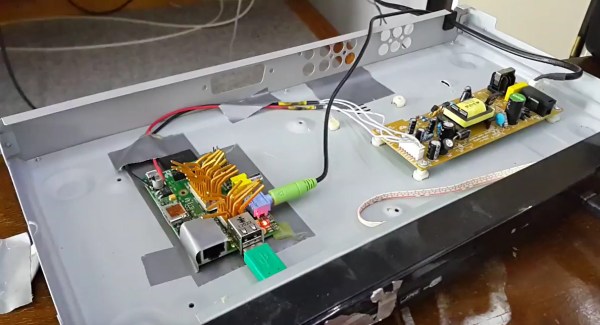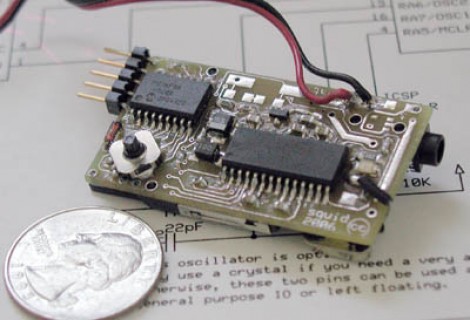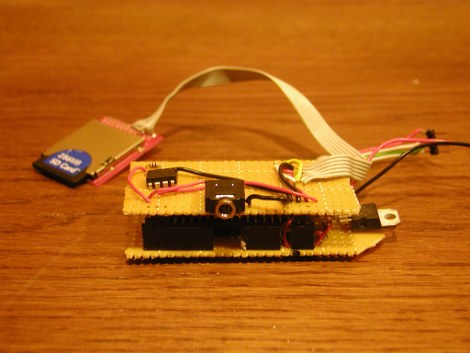Anyone who first experienced music on computers using Winamp probably shares a memory of seeing that classic UI for the first time. Everything about it was a step ahead of the clunky, chunky interfaces we were used to, and even though it was supposed to be unobtrusive, it was hard to tear your eyes off that silky-smooth spectrum analyzer bouncing out your favorite MP3s.
Recapturing a little of the Winamp magic is the goal of Linamp, an physical version of the classic media player. It reproduces the Winamp UI on a touchscreen LCD with a wide aspect ratio that almost perfectly matches the original layout. Behind the display is a Raspberry Pi 4 with a 32 GB SD card, with all the important connections brought out to a board on the back of the case. The case itself is a treat, as it borrows design elements from another bit of retro gear, the mini-rack audio systems that graced many a bookshelf in the 1980s — and powered many high school parties too, if memory serves.
To recreate the case, [Rodmg] designed a sheet metal case and had it custom-made from anodized aluminum by PCBWay. He also printed a bezel for the display that looks very similar to the Winamp window border, complete with control icons. Where the build really shines, though, is with the work [Rodmg] put into the software. He matched the original Winamp UI very closely, both in terms of layout and performance. The pains he went to to get the spectrum analyzer working, including a deep dive into FFT, are impressive.
The results speak for themselves on this one, and hats off to [Rodmg] for the effort and the ride on the nostalgia train. We don’t know if the recent announcement of Winamp’s impending open-sourcing will have much impact on this project, but it might result in a flood of new Winamp builds.














